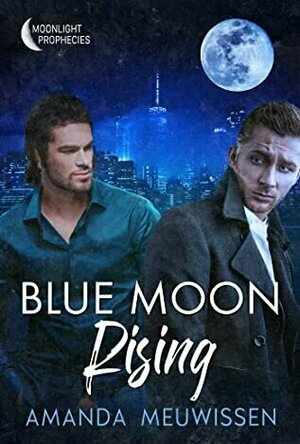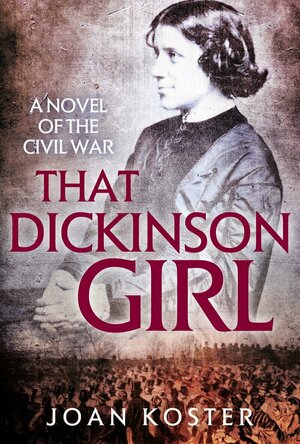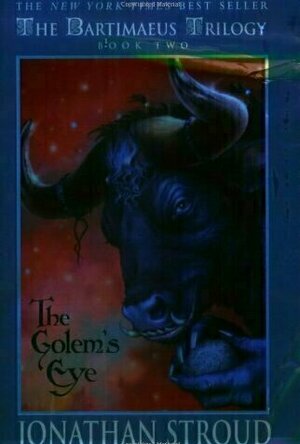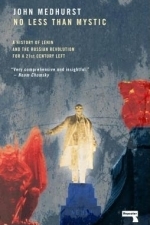
A Spell of Good Things
Book
Ayòbámi Adébáyò, the Women’s Prize shortlisted author of Stay With Me, unveils a dazzling...
Nigeria Trigger Warning: domestic violence
Violeta tells the story of a woman’s life over 100 years. It starts during the Spanish flu and it’s terrible repercussions, and goes on through both tumultuous political times and Violeta’s own turbulent past - her life and her country’s history pretty much mirroring one another.
I felt consumed by this story and I’d come up for air, wondering why on Earth I hadn’t heard of Allende before A Long Petal?!
This, I believe, is the history of Chile and there are a fair few autobiographical bits of Allende’s own life thrown in for good measure. What a life the fictional Violeta and her family experience - and what a force Violeta is. She needs to be as well.
I can’t believe that 100 years could be fit into such a relatively short book without it feeling rushed.
It really is a wonderful read.
David McK (3721 KP) rated Shang-Chi and the Legend of the Ten Rings (2021) in Movies
Nov 21, 2021
We've had Origin stories (upon origin story upon origins story ...)
We've had 'fish out of water' comedies (see: Thor)
We've had outright sci-fi/sci-fantasy (see: Guardians of the Galaxy)
We've had political thrillers (see: Captain America: The Winter Soldier)
We've had team-up (see: The Avengers)
We've had crime capers (See: Ant-man)
Up until now, we've had no Martial Arts movies (sorry, Netflix's 'Iron Fist': you don't count as a movie).
We've also had no movies with a mainly Asian cast. Until now.
This also brings back the 10 Rings organisation (first name-dropped all the way back in 2008's 'Iron Man'), with the plot outline of the movie actually quite different than what I expected - lots of Martial Arts sequences (the fight on the bamboo scaffolding is a high-light), the usual Marvel musings on family, and one or two character inclusions that I wasn't expecting (but really should have been) ...

Blue Moon Rising (Moonlight Prophecies #2) by Amanda Meuwissen
Book
Alpha Jay Russell’s broken engagement may just be the best thing that ever happened to him. His...
Paranormal MM Romance Reluctant Hero Shifters

That Dickinson Girl (Forgotten Women #1)
Book
She’s going to be the greatest orator of the Civil War! Eighteen-year-old Anna Dickinson is...
Historical Biographical Fiction
Heather Cranmer (2721 KP) created a post
Oct 24, 2022

The Golem's Eye (Bartimaeus, #2)
Book
At only fourteen, Nathaniel is a rising star: a young magician who is quickly climbing the ranks of...

The Woman in the Wallpaper
Book
Paris, 1789. The Oberst Factory, which crafts exquisite wallpaper for the most fashionable French...
Historical fiction French Revolution
Hazel (1853 KP) rated No More Than Mystic in Books
Sep 23, 2017
No Less Than Mystic: A Story of Lenin and the Russian Revolution for a 21st Century Left by John Medhurst is an in-depth historical and political insight to the truth about what really happened in Russia before, during and after the Bolshevik insurrection of October 1917. Beginning with the end of the Tsars rule and ending with Stalinism, Medhurst unearths the fact from the fiction, challenging the information the world has been led to believe.
As mentioned in Medhurst lengthy introduction, previous books on the subject are often biased and inaccurate. Swayed by political beliefs, authors and historians often pass judgement by using the information they have chosen to believe, dismissing anything that goes against their viewpoint. In this book, Medhurst filters through these false histories, preferring to cite from publications written at the time rather than those penned by people who did not witness the events between 1903 and 1921.
Medhurst’s narrative is more political than historical, often going off on tangents. In order to for the reader to obtain some sort of connection with the events described, the author contrasts them with more recent occurrences that readers may have observed or at least understand. These include the British miner’s strike, feminist movements, the Greek economy and a variety of other capitalist struggles.
The Russian revolution is a complex affair that cannot easily be condensed. As a result, No More Than Mystic exceeds 600 pages and covers every event, no matter how big or small, that contributed to the rise of USSR. Russia was a dangerous place to live during the 20th century, particularly when Leninism spiralled into Stalinism. However, Leninism was not all the history books make it out to be.
During GCSE History, one teacher led his class to believe that Lenin was good and Stalin was bad, however, the reality was much more complicated than that. Lenin was not the good guy that many painted him to be. Thousands died as a result of his policies from both execution and starvation. Yet, at the same time, Medhurst tries to point out the reasoning behind the ideas of the communist rulers, refusing to give a personal opinion without laying bare both sides of the argument.
Although this book is accurate and educational, it is not the easiest to sit down and read. Extensive chapters full of mind-numbing information detract from the comprehensive insightfulness of the content. Notwithstanding the fact that the inclusion of contrasting capitalist examples helps the reader to establish some form of familiar ground, the sudden changes in topic, location and time period are often confusing and hard to follow.
No Less Than Mystic is for the intellectual person with a great interest in 20th-century Russian history and communist affairs. Without any prior education on the topic, this book will not mean anything. It attempts to challenge the ingrained beliefs people have about what happened during the Bolshevik insurrection. Those who do not know anything will not benefit from the confronting enlightenment.
In all, No Less Than Mystic is a well-researched academic text that brings a fresh history of Lenin and the Russian Revolution. Those who want an unbiased truth need to read this book and be sceptical about any other on the topic. In order to form opinions, one must know the facts.
Hazel (1853 KP) rated No More Than Mystic in Books
Dec 7, 2018
No Less Than Mystic: A Story of Lenin and the Russian Revolution for a 21st Century Left</i> by John Medhurst is an in-depth historical and political insight to the truth about what really happened in Russia before, during and after the Bolshevik insurrection of October 1917. Beginning with the end of the Tsars rule and ending with Stalinism, Medhurst unearths the fact from the fiction, challenging the information the world has been led to believe.
As mentioned in Medhurst lengthy introduction, previous books on the subject are often biased and inaccurate. Swayed by political beliefs, authors and historians often pass judgement by using the information they have chosen to believe, dismissing anything that goes against their viewpoint. In this book, Medhurst filters through these false histories, preferring to cite from publications written at the time rather than those penned by people who did not witness the events between 1903 and 1921.
Medhurst’s narrative is more political than historical, often going off on tangents. In order to for the reader to obtain some sort of connection with the events described, the author contrasts them with more recent occurrences that readers may have observed or at least understand. These include the British miner’s strike, feminist movements, the Greek economy and a variety of other capitalist struggles.
The Russian revolution is a complex affair that cannot easily be condensed. As a result, <i>No More Than Mystic</i> exceeds 600 pages and covers every event, no matter how big or small, that contributed to the rise of USSR. Russia was a dangerous place to live during the 20th century, particularly when Leninism spiralled into Stalinism. However, Leninism was not all the history books make it out to be.
During GCSE History, one teacher led his class to believe that Lenin was good and Stalin was bad, however, the reality was much more complicated than that. Lenin was not the good guy that many painted him to be. Thousands died as a result of his policies from both execution and starvation. Yet, at the same time, Medhurst tries to point out the reasoning behind the ideas of the communist rulers, refusing to give a personal opinion without laying bare both sides of the argument.
Although this book is accurate and educational, it is not the easiest to sit down and read. Extensive chapters full of mind-numbing information detract from the comprehensive insightfulness of the content. Notwithstanding the fact that the inclusion of contrasting capitalist examples helps the reader to establish some form of familiar ground, the sudden changes in topic, location and time period are often confusing and hard to follow.
<i>No Less Than Mystic </i>is for the intellectual person with a great interest in 20th-century Russian history and communist affairs. Without any prior education on the topic, this book will not mean anything. It attempts to challenge the ingrained beliefs people have about what happened during the Bolshevik insurrection. Those who do not know anything will not benefit from the confronting enlightenment.
In all, <i>No Less Than Mystic</i> is a well-researched academic text that brings a fresh history of Lenin and the Russian Revolution. Those who want an unbiased truth need to read this book and be sceptical about any other on the topic. In order to form opinions, one must know the facts.


